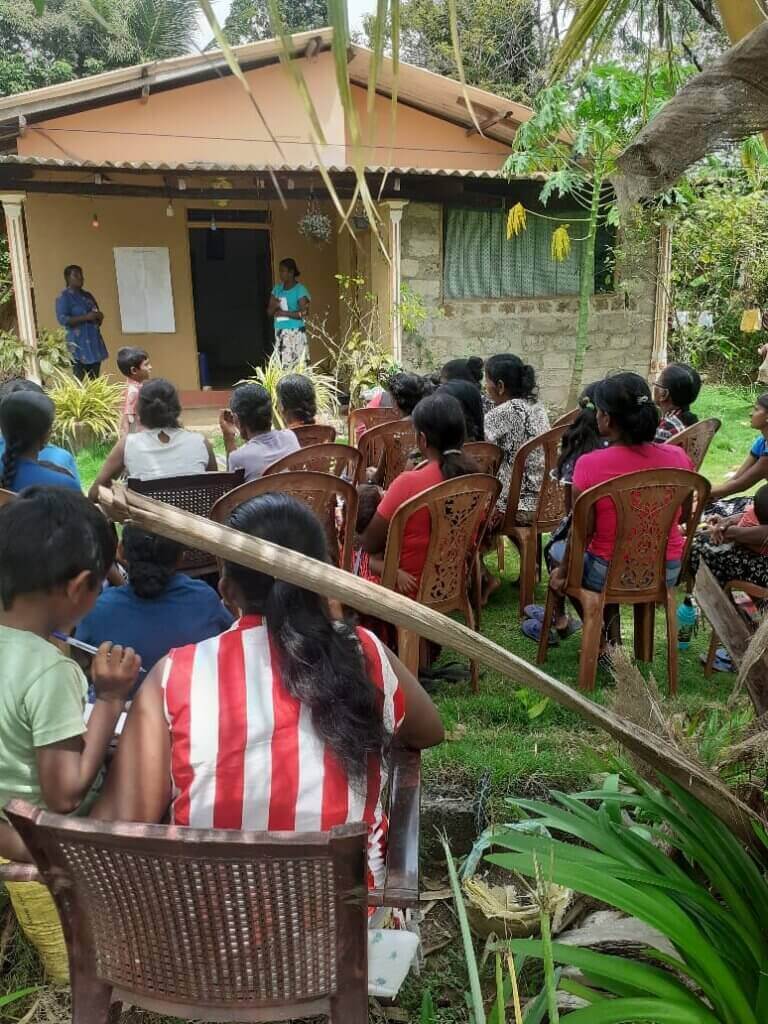
How Sri Lanka’s Farmers Can Transition to Organic Agriculture
In the verdant landscapes of Sri Lanka, where agriculture has been the backbone of the economy for centuries, a quiet revolution is taking root. As global concerns about food security, environmental sustainability and human health continue to grow, there is growing recognition of the importance of making the transition from conventional to organic farming methods. However, this transition is not simply a matter of replacing agrochemicals with organic inputs; it requires a profound change of mindset, practices, and systems. In this article, we look at the subtleties of how Sri Lankan farmers can successfully make this transition to organic farming.
Organic farming is not just a set of techniques; it’s a holistic approach that considers the interconnectedness of the agroecosystem, the well-being of farming communities and the sustainability of the environment. Unlike conventional agriculture, which often relies on synthetic fertilizers, pesticides and genetically modified organisms, organic farming emphasizes natural processes, biodiversity, and soil health. By avoiding chemical inputs and adopting organic practices, farmers can grow crops in a way that nourishes the earth, conserves water and protects flora and fauna.

Main economic crops in Sri Lanka © Renaissance Sri Lanka
Challenges on the Path to Organic Farming
However, the transition to organic agriculture is not without its challenges. Many farmers are accustomed to conventional methods and may be skeptical about the feasibility of going organic. Moreover, there are practical barriers such as access to organic inputs, technical knowledge, and market demand for organic produce. To overcome these hurdles, a multifaceted approach is necessary.
Education and Training: Empowering Farmers for Change
First and foremost, education and awareness play a crucial role in facilitating the transition to organic farming. Farmers need to be equipped with the knowledge and skills required to adopt organic practices effectively. This includes training on composting, crop rotation, integrated pest management, and organic certification processes. Agricultural extension services, research institutions, and non-governmental organizations can play a pivotal role in providing training and technical support to farmers.

Participants learn traditional eco-friendly farming methods during Project 120: Agro-Ecological Farming in Sri Lanka conducted by Renaissance Sri Lanka and MONLAR © Renaissance Sri Lanka & MONLAR
Additionally, there needs to be concerted efforts to improve access to organic inputs and resources. This may involve subsidizing organic fertilizers, promoting the use of biopesticides, and establishing organic seed banks. Government policies can also incentivize the adoption of organic farming practices through subsidies, grants, and tax incentives. Furthermore, investment in infrastructure such as organic processing facilities and distribution networks can help farmers access lucrative markets for organic produce.
Shifting Mindsets: Embracing a Holistic Approach
Crucially, the transition to organic agriculture requires a shift in mindset from a reductionist approach to a more holistic and systemic perspective. Organic farming is not just about substituting chemical inputs with organic alternatives; it’s about reimagining the entire agricultural system. This involves practices such as agroforestry, agroecology, and permaculture, which mimic natural ecosystems and promote biodiversity. By fostering healthy soil, diverse crops, and symbiotic relationships between plants and beneficial organisms, organic farming can enhance resilience to pests, diseases, and climate change.
Beyond Farming: Socioeconomic Impacts of Organic Agriculture
Moreover, organic agriculture goes beyond the farm gate to encompass social and economic dimensions. By prioritizing the well-being of farming communities, organic farming can contribute to rural development, poverty alleviation, and food security. By fostering direct relationships between farmers and consumers through farmers’ markets, community-supported agriculture, and organic cooperatives, organic agriculture can create value chains that are more equitable, transparent, and resilient.
How Renaissance Sri Lanka Contributes to Transforming Sri Lanka into Organic Agriculture
As Renaissance Sri Lanka (RSL), we are committed to promoting organic farming across the country, envisioning self-reliant communities amidst economic challenges. By embracing the concept of community ecosystems, we aim to reduce import dependency and foster sustainability through local resources and agro-ecological practices.

Renaissance Sri Lanka’s Concept of Ecosystems © Renaissance Sri Lanka
In 2022, as our first step, we initiated a collaboration with MONLAR, a trusted partner in the field of organic farming. Together, we conducted agroecology trainings and provided traditional seeds and planting materials to 120 selected women farmers from vulnerable communities – Read more here.

Renaissance Sri Lanka & MONLAR First Training Session – Theoretical Training © Renaissance Sri Lanka & MONLAR
Through these efforts, we have empowered women to engage in organic farming using sustainable practices, ensuring a stable income, and reviving traditional agriculture. Our focus on women affected by microfinance scams and resettlement projects has made a real impact on their lives and the environment. Moving forward, Renaissance Sri Lanka remains committed to further promoting organic farming initiatives, expanding our reach, and empowering more communities to embrace sustainable agricultural practices for a greener, healthier future.
Conclusion: The Collective Journey Towards Organic Farming
In conclusion, the transition to organic agriculture in Sri Lanka requires a concerted effort from all stakeholders – farmers, government, civil society, and consumers. By embracing organic farming practices, Sri Lanka can not only safeguard its natural resources and biodiversity but also promote sustainable livelihoods and food sovereignty. However, this transition will require patience, persistence, and collaboration to overcome the challenges and realize the full potential of organic agriculture in Sri Lanka.
Reference
Hector Kobbekaduwa Agrarian Research and Training Institute. Roadmap for Converting Sri Lanka to organic farming Accessed May 2024


